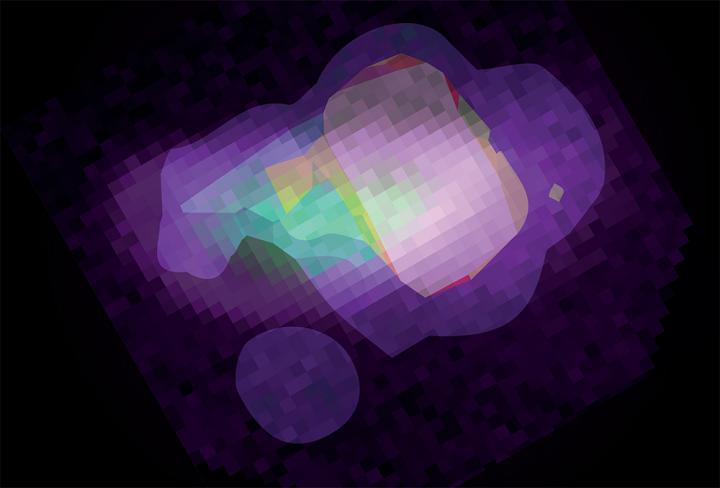
Credit: Artur Yakimovich
Researchers have developed a new AI-driven platform that can analyse how pathogens infect our cells with the precision of a trained biologist.
The platform, HRMAn (‘Herman’), which stands for Host Response to Microbe Analysis, is open-source, easy-to-use and can be tailored for different pathogens including Salmonella enterica.
Pioneered by scientists at the Francis Crick Institute and UCL, HRMAn uses deep neural networks to analyse complex patterns in images of pathogen and human (‘host’) cell interactions, pulling out the same detailed characteristics that scientists do by-hand. The research is published in the open access journal eLife, which includes a link to download the platform and access tutorial videos.
“What used to be a manual, time-consuming task for biologists now takes us a matter of minutes on a computer, enabling us to learn more about infectious pathogens and how our bodies respond to them, more quickly and more precisely,” says Eva Frickel, Group Leader at the Crick, who led the project. “HRMAn can actually see host-pathogen interactions like a biologist, but unlike us, it doesn’t get tired and need to sleep!”
To demonstrate the power of HRMAn – which runs on the KNIME platform – the team used it to analyse the body’s response to Toxoplasma gondii, a parasite that replicates in cats and is thought to be carried by more than a third of the world’s population.
Researchers in the Crick’s High Throughput Screening facility collected over 30,000 microscope images of five different types of Toxoplasma-infected human cells and loaded them into HRMAn for analysis. HRMAn detected and analysed over 175,000 pathogen-containing cellular compartments, providing detailed information about the number of parasites per cell, the location of the parasites within the cells, and how many cell proteins interacted with the parasites, among other variables.
“Previous attempts at automating host-pathogen image analysis failed to capture this level of detail,” says Artur Yakimovich, Research Associate in Jason Mercer’s lab at the MRC LMCB at UCL and co-first author of the study. “Using the same sorts of algorithms that run self-driving cars, we’ve created a platform that boosts the precision of high volume biological data analysis, which has revolutionised what we can do in the lab. AI algorithms come in handy when the platform evaluates the image-based data in a way a trained specialist would. It’s also really easy to use, even for scientists with little to no knowledge of coding.”
The team also used HRMAn to analyse Salmonella enterica – a bacterial pathogen 16 times smaller than Toxoplasma, demonstrating its versatility for studying different pathogens.
“Our team uses HRMAn to answer specific questions about host-pathogen interactions, but it has far-reaching implications outside the field too,” says Daniel Fisch, Crick PhD student and co-first author of the study. “HRMAn can analyse any fluorescence image, making it relevant for lots of different areas of biology, including cancer research.”
###
Media Contact
Greta Keenan
[email protected]
44-203-796-5252
Original Source
https:/
Related Journal Article
http://dx.




